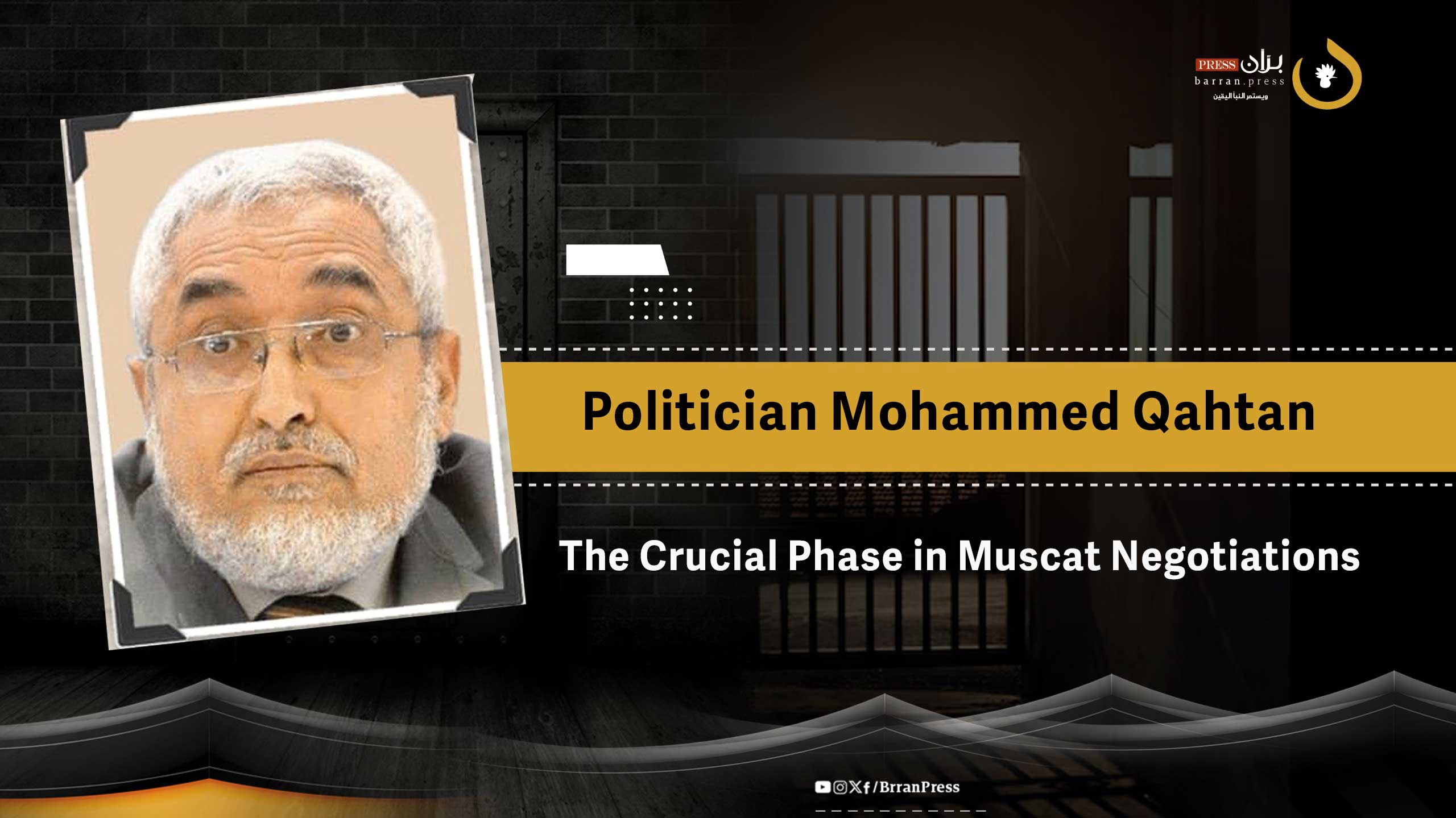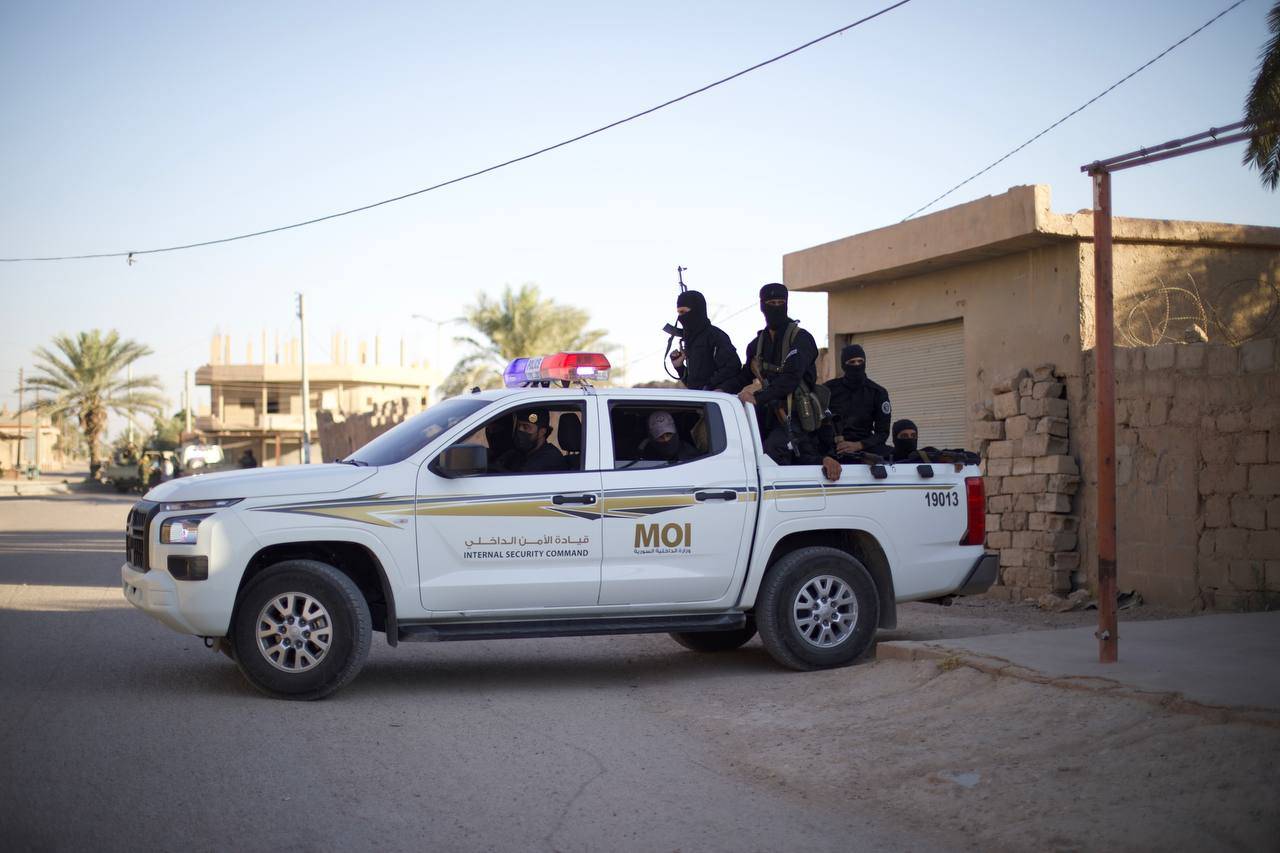
Barran Press
A new round of negotiations between Yemeni parties, facilitated by the United Nations and the International Committee of the Red Cross, commenced in the Omani capital Muscat on Sunday, June 30, 2024, focusing on the issue of detainees and prisoners.
The talks come amid concerns over their potential failure, particularly given the refusal of the Houthi group, designated as a terrorist organization by several countries, to fulfill its commitments in previous agreements regarding detainees and prisoners. This includes the crucial issue of allowing access to politician Mohammed Qahtan, who has been forcibly disappeared in Houthi prisons for nine years.
The government delegation has previously accused the Houthis of using Qahtan's case, which is covered by UN Security Council Resolution 2216, as a political tool to pressure the UN, the international community, and the internationally recognized Yemeni government. The Houthis have refused to disclose his whereabouts since his abduction on April 4, 2015.
In his opening remarks at the Muscat negotiations, the head of the government delegation Yahya Kazzman linked the success of the consultations to the revelation of Qahtan's fate.
Kazzman stated that one of the main objectives of the participation is "the release and exchange of politician Mohammed Qahtan," whom he described as a "major obstacle that must be resolved before moving to a more comprehensive process and closing this humanitarian file by releasing all detainees and abductees held by all parties without exception."
Lengthy Process
Former Minister of Legal Affairs, Mohammed Al-Mikhlafi, stated that "the release of prisoners undergoes a lengthy and procrastinating process since 2015 until today. The efforts made by the legitimate authority and international mediators have led to the release of the national figure, Mahmoud Al-Subaihi, and his companions, while Mohammed Qahtan, who was arrested from his home and forcibly disappeared in 2015, was excluded from the list."
In a statement to "Barran Press," he added, "In every round of negotiations for the release of detainees, an agreement is reached to release everyone according to the principle of 'all for all.' However, this principle is abandoned each time, prolonging the suffering of the detainees and their families, whether they are held by the Houthi rebels or the legitimate authority."
According to Al-Mikhlafi, "The legitimate authority must adhere to the agreed-upon principle of 'all for all,' and it must necessarily include political prisoners, foremost among them being Professor Mohammed Qahtan."
Greater Effort
Al-Mikhlafi also stated that "Qahtan deserves greater effort from the state he was arrested for defending, as well as from civil society, political parties, and non-governmental organizations to reveal his fate and secure his release." He considered this effort "an expression of appreciation for his dedicated efforts to end the conflict and disputes between political forces and to transition to civil society and the building of a civil state."
He said that the politician Qahtan, "alongside his companion Jar Allah Omar, made significant efforts that resulted in political reconciliation among most Yemeni parties and the establishment of the 'Joint Meeting Parties,' which represented a unique experience in the Arab world."
Al-Mikhlafi added, "The release of detainees, whether political or military, is one of the confidence-building measures that should be implemented as a comprehensive package without fragmentation, alongside the implementation of previous agreements, foremost among them the Stockholm Agreement in all its aspects."
He further stated that "agreement on the principles that will govern the transitional period and the future state, including the principles of citizenship, equality, non-discrimination for any reason, respect for political and party pluralism, peaceful power transition, the return of displaced persons to their homes, and the restoration of their properties, among other trust-building factors, should precede the comprehensive settlement."
Low Expectations
According to political researcher Hussein Al-Soufi, "The exchange file is considered one of the files that were accomplished in 2018."
Al-Soufi added in a statement to "Barran Press" that "the government was supposed to reconsider the negotiation mechanism in general and develop a national strategy for this process, in order to prevent the militia from exploiting the issue of the kidnapped and using it as leverage to achieve political gains."
Therefore, Al-Soufi says that "expectations are low considering the local, regional, and international circumstances."
A National Issue
Regarding the Qahtan case, Al-Soufi says it is a "distinct national issue with a humanitarian character." Furthermore, he states that it "is based on the text of Security Council Resolution 2216, which calls for his immediate release without conditions."
According to Al-Soufi, "What the Houthi militia is doing against Qahtan is a crime against humanity and a complex crime. Firstly, it involves the crime of kidnapping and disappearance. Secondly, it includes cutting off communication with his family and hiding any information about him for nine years. Thirdly, it involves politically exploiting this crime on the United Nations table."
Al-Soufi criticized what he called "the crime of allowing the militia to simply discuss and blackmail such crimes, which are considered a priority for the United Nations, which was established to prevent such heinous crimes against humanity as a whole."
A Winning File
Al-Soufi considered the Qahtan case a "winning file for the government," emphasizing the need for them to firmly hold onto it and have effective options to make progress if there is the will and wisdom in their actions.
As for his expectations, he said, "The Yemeni file is interconnected and complex, both locally and regionally, which leaves all options open and expectations uncertain."
Al-Soufi warned the United Nations against "getting involved in legitimizing the crime of kidnapping and hiding individuals and accepting them as hostages to achieve political gains."
He stated that "its responsibility is to exert pressure to enforce the laws of war, humanitarian laws, and agreements protecting human rights and freedoms."
A Crucial Phase
On the other hand, former researcher and diplomat Mustafa Naji stated that the round of negotiations in Muscat "will take place under external pressure without the availability of conditions for success."
Regarding the Qahtan case, Naji explained in a brief statement to "Bran Press" that it is still "the crucial phase, and the Houthis will not directly make any concessions regarding it."





